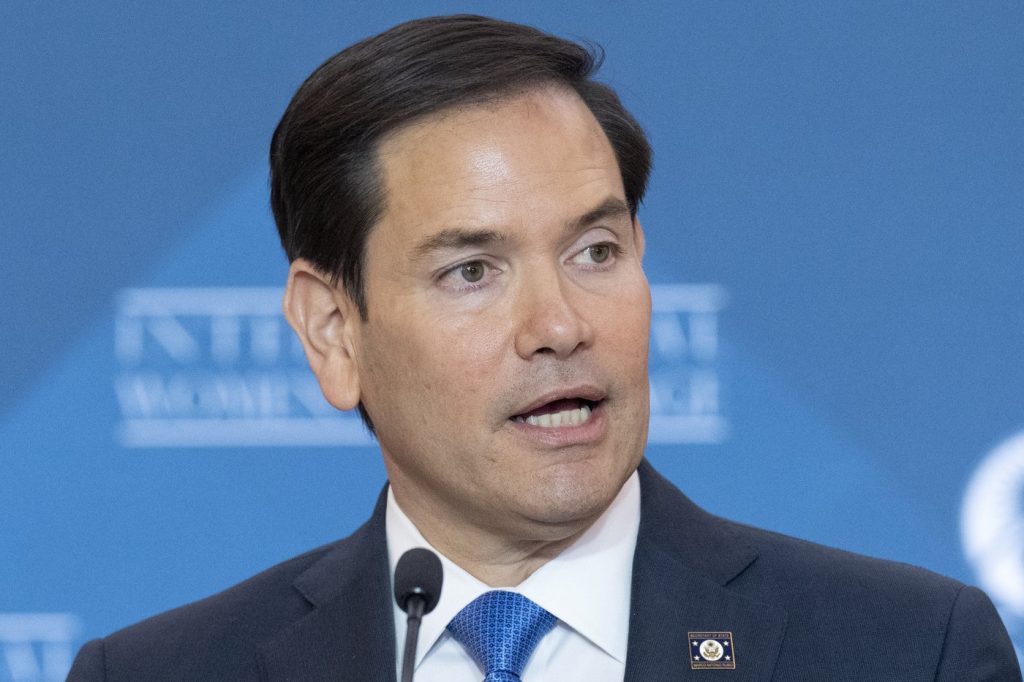U.S. Secretary of State Marco Rubio is set to attend a crucial meeting this week with top diplomats from NATO countries in Brussels. This gathering is particularly significant as it comes amid mounting concerns among allies regarding the Trump administration's approach to international relations, especially its inclination to reestablish ties with Russia. Diplomats in attendance are expected to voice their alarm, anger, and confusion over Trump's evolving stance, which includes escalating rhetorical attacks on NATO partners, notably Canada and Denmark.
Allies are uneasy with President Donald Trump's overtures towards Russian President Vladimir Putin, who regards NATO as a threat. This unease is amplified by the ongoing U.S. efforts to mediate a ceasefire in Ukraine, alongside recent comments from the White House that criticize NATO allies. The initiation of new U.S. tariffs impacting both friends and foes has further fueled this anxiety, leaving many European officials questioning the future of American leadership within NATO.
Rubio's two-day meetings in Brussels will likely focus on the future U.S. role in the alliance. NATO has long been predicated on American leadership, and many European officials harbor deep concerns that Trump may disrupt this foundation. As NATO leaders prepare for a summit in June, these worries will underscore discussions and could significantly reshape the transatlantic relationship.
At the recent Group of 7 (G7) meeting, Rubio managed to promote a more pragmatic approach, attempting to create a consensus regarding the war in Ukraine, which stands in stark contrast to Trump's declarations that Ukraine would never join NATO. Nevertheless, Rubio faces immense challenges in justifying the administration's harsh verbal attacks on Canada and Denmark, territories Trump has disparaged while labeling them as "bad allies." The uncertainty surrounding America's commitment to NATO raises more questions than answers.
Adding to this tension, NATO members are contemplating how they will need to adapt in light of U.S. security priorities shifting towards Asia and American troops potentially drawing down in Europe. There is an observable push within Europe and Canada for a "burden-shifting" strategy to assume greater responsibility for their own defense. NATO allies are keen to obtain clarity from Rubio regarding the administration's strategy, specifically about future troop deployments and the possible drawdown of U.S. personnel.
With approximately 100,000 U.S. troops stationed in Europe, the reliance on U.S. firepower for credible deterrence against adversaries like Russia remains paramount for NATO's effectiveness. Consequently, not only must the U.S. maintain its military presence, but allies also expect to hear reassurances that America still perceives Russia as a significant threat. Trump's conciliatory comments towards Putin prompt apprehension about the alliance's future cohesion and financial commitments toward defense.
In light of these challenges, NATO countries are prepared to increase their defense spending goals from at least 2% to potentially over 3% of GDP in response to security concerns. However, dialogue with Rubio will likely be marked by skepticism as allies question the rationale behind increasing their defense expenditures while Trump seems to advocate for closer ties with Russia. Analysts noted that this places Rubio in a precarious position, needing to reassure European allies while navigating the conflicting messages of the administration.
In conclusion, the upcoming NATO meeting stands to be a pivotal moment for U.S.-European relations, with Secretary of State Marco Rubio's ability to reassure allies being put to the test in an increasingly complex geopolitical landscape.










